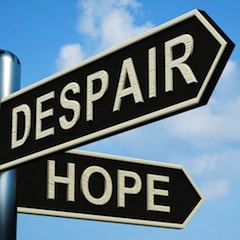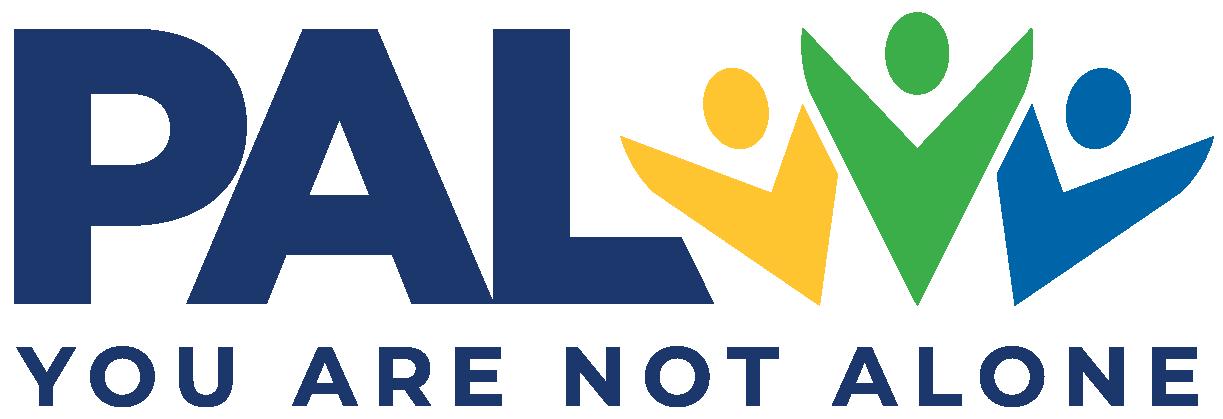
For an addicted loved one’s parents, the shock of the situation and then the often-frustrating continued drug or alcohol use (“Why won’t he or she stop using these drugs?” “How can he or she not know
what the risk is?”) can lead to hopelessness, the feeling that you are on an endless treadmill of despair…. It is a complex issue, but one you can address. Part of the reason for hopelessness is that you find yourself in the middle of something that you do not understand, causing you to feel overwhelmed.
The situation often began without you, and you can’t see an end in sight, so resolution seems impossible, especially if your loved one is not eager to address his or her problem. Your hopeless feeling from your adult child’s drug or alcohol use or relapse may occur, but how long must you feel that way? Even though this painful feeling negatively affects every aspect of your life, ask yourself, “How long must I feel this way?” Further, ask yourself, “Do situations or other people have complete control of my feelings, or do I have a measure of control over my own hopeless feelings?” Asking yourself these questions, answering them truthfully, and embracing them may help parents realize there is a way out.
What if your hopelessness comes not just as a result of your adult child’s drug or alcohol use or relapse, but also because of your lack of education about recovery from addiction? Not having the knowledge or resources necessary to deal with this complex and emotional situation can lead to a predictable cycle of hopeful expectations when your son or daughter is getting help, then a sense of hopelessness when he or she relapses. Feeling hopeless is a learned condition, not a natural condition. Hope is a human beings’ natural condition. After all, have you ever met a baby who feels hopeless? To feel hopeless, you must believe that your loved one’s life will never get any better. What type of situation do you imagine would have to happen for a parent to be headed down the road known as the Hopeless Highway? And, how long would the situation have to persist to arrive at the point of hopelessness? It depends upon the people involved and their individual experiences, but prolonged and repeated relapse can put you on this ruinous road.
Hopelessness can be replaced with hope. It’s done by turning around and heading the opposite direction on that highway; one you didn’t, after all, ask to be on. Even though your hopeless feeling can be changed through education, you must take the risk of trusting other people to help you make that U-turn toward hope. This would be an ideal time to get help for yourself. It just makes good sense for you to see a counselor who understands addiction and recovery and who can help you cope with all the stress you have been carrying. It’s important to note that getting such help for yourself will end up benefiting your addicted son or daughter in powerful ways that may not be obvious. In general, to remain hopeless, people must cut off meaningful communication with others. That is, keeping true thoughts, feelings, innermost needs, and desires secret, rather than revealing them to another person who could help. That other person helps by providing a fresh and objective perspective. Many times, the hopeless among us are easy to spot because they are obviously cutting off communication by isolating themselves. Interestingly enough, though, a hopeless person might also be the most outgoing one in the room, yet remain at a surface level in all of his or her communication. The hopeless person is actually remaining so by:
- Not revealing a need for help.
- Not asking for help.
- Not accepting help from others.
All three of these hidden problems must be overcome if someone is to make the journey from hopeless to hopeful. Hope can be restored when a hopeless person takes the risk of revealing his or her need for help to someone outside himself or herself, whether it is another person or a higher power.
Excerpt from the Four Seasons of Recovery, for Parents of Alcoholics and Addicts: How to Help Your Adult Child Give up Destructive Addictions for Good. By Mike Speakman (Founder of PAL)
Book available from PAL at the following https://books.palgroup.org/
